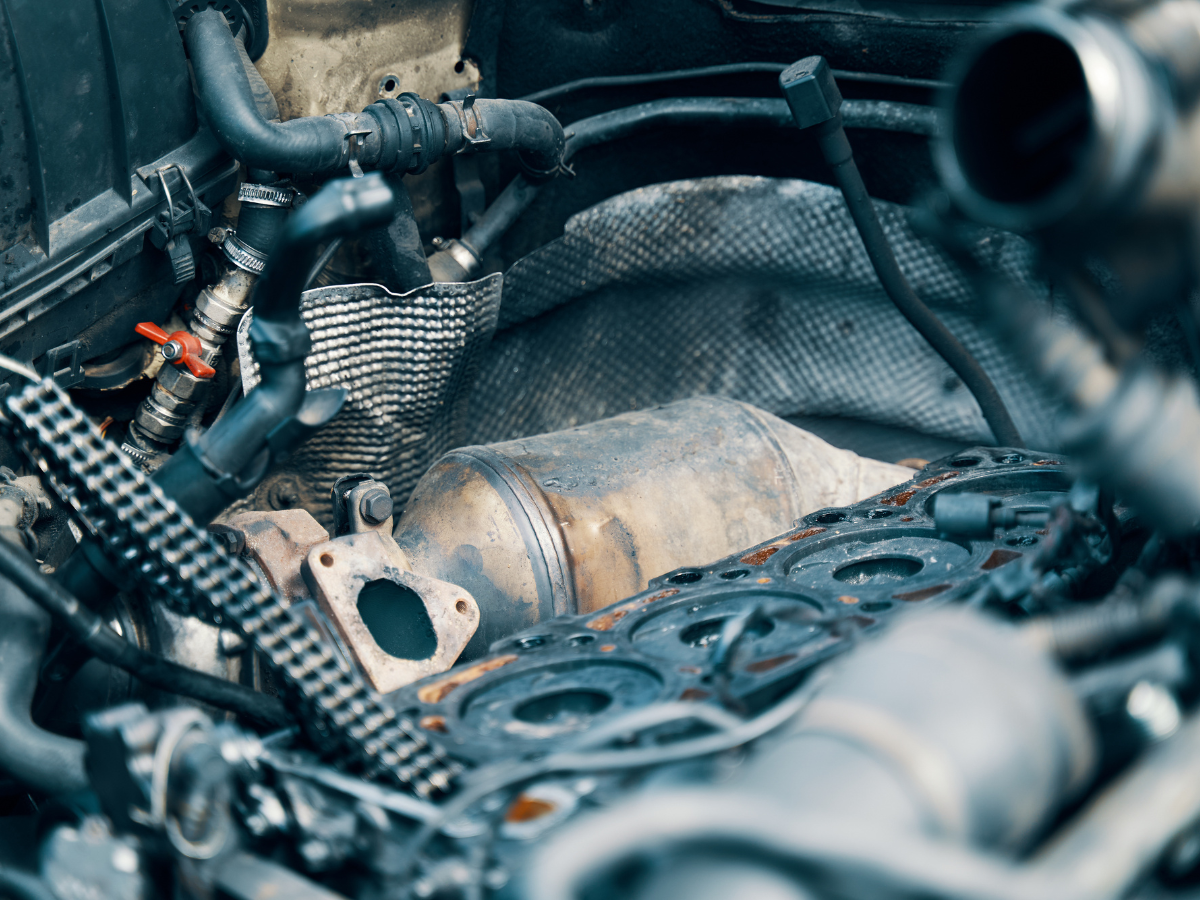
6 Symptoms of a Faulty or Clogged Diesel Particulate Filter
Find out the symptoms and warning indications that could point to a faulty or clogged diesel particulate filter.
The diesel particulate filter (DPF), if you operate a diesel vehicle, may be familiar to you yet you may not be aware of its function. In fact, you might not realise what this important component is until you are attempting to determine whether your car has a defective diesel particulate filter (DPF). But how can you detect whether your DPF is blocked or damaged?
Make an appointment for a full investigation at a car services in Reading garage if you suspect a diesel particular filter issue. When the DPF filter is blocked or clogged, the engine becomes less powerful, and the check engine light regularly flashes on your dashboard. Additionally, it might lead to harder starting and greater fuel consumption. Additionally, you can detect unappealing smells arising or turbocharger issues.
Are you aware that a failed emissions test during an MOT can also be caused by a blocked or malfunctioning diesel particular filter (DPF)? To prevent a failed MOT test, it is advised to check MOT expiry date and schedule an appointment beforehand for a comprehensive diagnostic and DPF repair with your local car mechanic.
6 symptoms of a faulty or blocked diesel particular filter (DPF)
The following are 6 symptoms of a faulty or blocked diesel particular filter (DPF):
1. Engine Management Light
The first sign that your DPF isn't working properly is an illuminated engine management light on your dashboard. The temperature and pressure before and after the DPF filter are measured by sensors inside the diesel particulate filter. If the pressure is off, the engine control module will illuminate the check engine light. If the check engine light appears on your dashboard, you should search online for a car service near me garage and make an appointment so that a qualified mechanic can read the trouble code memory with a code scanner to find the problem.
2. Reduced Engine Performance
The exhaust system is severely impacted when the DPF is obstructed. There is a backup in the system as a result of the inability to remove engine exhaust from the engine efficiently. The engine becomes sluggish and feeble when using the backup. You are unable to accelerate properly as new fuel can only be injected into the engine at a reduced pace as exhaust gas accumulation increases. In addition, the engine will require more power to expel the extra gases.
3. Unusual Smells
When exhaust gases build up inside the engine, an odd scent may be produced. This is not only unpleasant, but it can also be hazardous. You have a higher probability of starting a fire since exhaust gases can really be flammable and dangerous to breathe. However, when these scents are present, it can be difficult to tell whether anything else is wrong. Furthermore, it may result in the failure of an emissions test. check MOT history to see whether the DPF was to blame for a prior MOT failure that caused an emissions test to fail.
4. Poor Fuel Efficiency
You will use more fuel than usual since the engine is not operating efficiently. The blocked filter itself contributes to some of the inefficiency by requiring more fuel to do the same task. It is also a result of your engine needing more fuel to perform as intended. You will pay extra at the pump as a result of these issues. You'll undoubtedly notice the difference when diesel prices continue to rise.
5. Starting issues
An accumulation of exhaust gas in the engine is caused by a blocked DPF. Since the confined gas cannot escape, there is increased pressure. It gets more challenging to start the engine at this point. In fact, unless that pressure is released, the engine won't want to start. This issue more relates to safety design. With that much internal pressure, the engine could sustain irreparable damage, costing a lot to fix. It's advisable to clear the DPF before a clog happens to save yourself this money.
6. Damaged Turbo
Damage to the turbocharger must also be taken into account when there is an obstruction in the exhaust system. Temperatures can quickly increase when the gas flow is impeded or slowed down. The turbine housing also grows hotter if the issue isn't fixed right away. The turbocharger deteriorates if not repaired. Leaks may develop and efficiency will decrease if the housing sustains damage. Additionally, due to this issue, the oil inside the turbocharger may carbonise, endangering the engine itself.
Function of a Diesel Particulate Filter
The exhaust system includes the diesel particulate filter. Ash and soot are among the particles it is designed to catch. The substrate used in the construction of the DPF is ceramic. It creates a structure like a honeycomb that is good at capturing debris.
In order for the diesel vehicle to have lower emissions, the diesel particulate filter is designed to collect and hold the soot from the exhaust. Periodically, this soot is burnt off to aid in DPF regeneration. The dangerous emissions and black smoke that you are accustomed to seeing from diesel vehicles during acceleration are reduced by this regeneration process, which involves burning extra soot off and depositing it back in the filter.
According to EPA requirements, DPFs have been required on all vehicles since 2007. In order for the car to comply with stringent emissions rules, these filters catch debris.